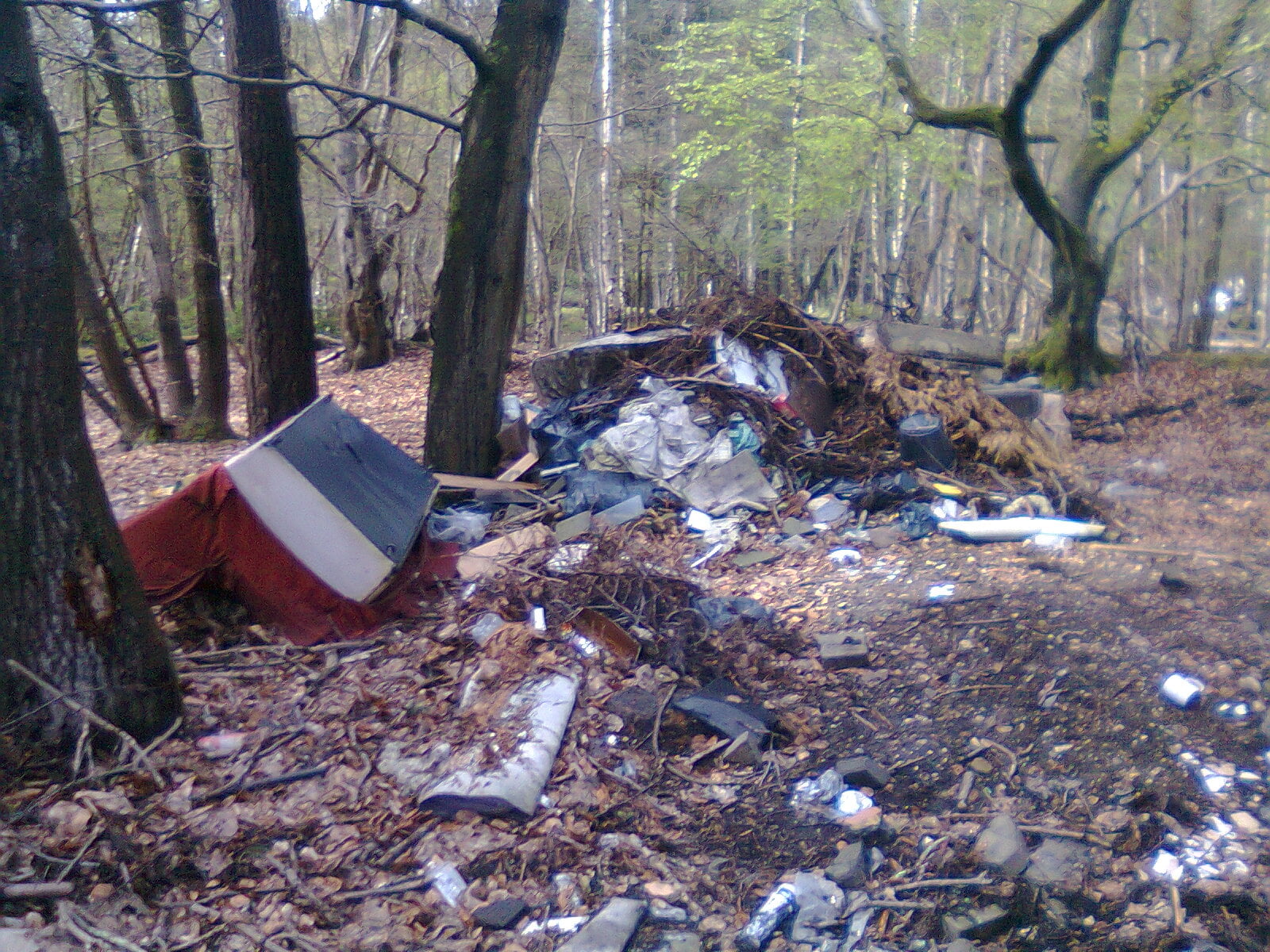Fly Tipping Removal and Recycling for Private Landowners and Local Councils.
Contact RJS Waste Management to request a quote for our fly-tipping clearance services that meet government regulations and will help protect your local environment.
Fly-tipped Waste Collection, Recycling and Removal Services
Fly Tipping: What it is and Why Removal Matters
Fly-tipping is the illegal dumping of liquid or solid waste on land or in water. The waste is usually dumped to avoid disposal costs. Areas of land that are typically affected by fly-tipping include lay-bys, private land, derelict land and woodlands. Without fly-tipping removal, public health, the environment, businesses and landowners all face serious risks.
The most common kinds of fly-tipping are domestic waste, such as:
- Construction waste
- Tyres and mechanical waste
- Household waste such as sofas and mattresses
The removal of fly-tipped waste is essential as some items can be hazardous, such as:
- Clinical waste such as pharmaceutical products and syringes
- Hazardous construction waste such as concrete additives and paints
- Asbestos Containing Materials (ACMs)
- Waste Electrical and Electronic Equipment (WEEE) such as fridges
Our experienced team at RJS Waste Management can help with the removal of any hazardous fly-tipping. We can assess, collect and dispose of your waste professionally, in line with hazardous waste regulations and at a competitive price.
The Rise in Demand for Fly Tipping Removal
Here at RJS Waste Management, we offer fly-tipping clearance services to keep public and commercial spaces clean. In recent years, the number of fly-tipping incidents has soared due to a significant increase in waste collections by non-licensed workers and a rise in landfill tax. The landfill tax is included in council tax for household rubbish, but businesses are required to use registered waste carriers, who must pay a levy to dispose of commercial waste. As a result, there has been a growing demand for fly-tipping removal to help tackle the issue.
Fly-tipping Facts and Removal
In England, Wales and Scotland the main legislation covering disposal of waste is the Environmental Protection Act 1990 (EPA 1990).
The removal of fly-tipped waste costs councils millions of pounds each year. Organisations that suffer these clear up costs are the Forestry Commission and the Highways Agency, as well as other public and private organisations.
Fly-tipping undermines legitimate waste management companies who work responsibly to adhere to the law when disposing of commercial waste. Unfortunately, ‘cowboy’ operators often bypass these regulations, leaving themselves open to significant fines and, in extreme cases, custodial sentences. To combat this issue, it’s crucial to rely on trusted fly-tipping removal experts. Professional fly-tipping clearance services not only help protect the environment but also support lawful waste disposal practices.
Asbestos Fly Tipping Removal
Illegally dumped hazardous waste has a negative effect on the environment. Our fly-tipping services include the clearance of items like syringes, chemical waste and other toxic materials. These can cause risks to human health and can harm wildlife and farm animals, either through direct contact with fly-tipped waste or contamination of nearby water sources. Also, waste like furniture and tyres can be fire hazards in wooded areas. Proper fly-tipping removal can help safely manage these risks to protect communities and ecosystems.
Fly-tipping is a criminal offence that affects the appearance of an area and the quality of life for people living there. Our fly-tipping clearance services help maintain safe and attractive surroundings to help encourage economic growth.

